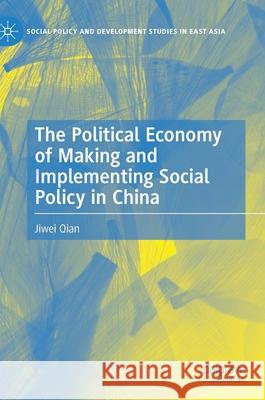The Political Economy of Making and Implementing Social Policy in China » książka
topmenu
The Political Economy of Making and Implementing Social Policy in China
ISBN-13: 9789811650246 / Angielski / Twarda / 2021 / 165 str.
Kategorie:
Kategorie BISAC:
Wydawca:
Palgrave MacMillan
Seria wydawnicza:
Język:
Angielski
ISBN-13:
9789811650246
Rok wydania:
2021
Wydanie:
2021
Numer serii:
001189613
Ilość stron:
165
Waga:
0.41 kg
Wymiary:
21.01 x 14.81 x 1.42
Oprawa:
Twarda
Wolumenów:
01
Dodatkowe informacje:
Wydanie ilustrowane











